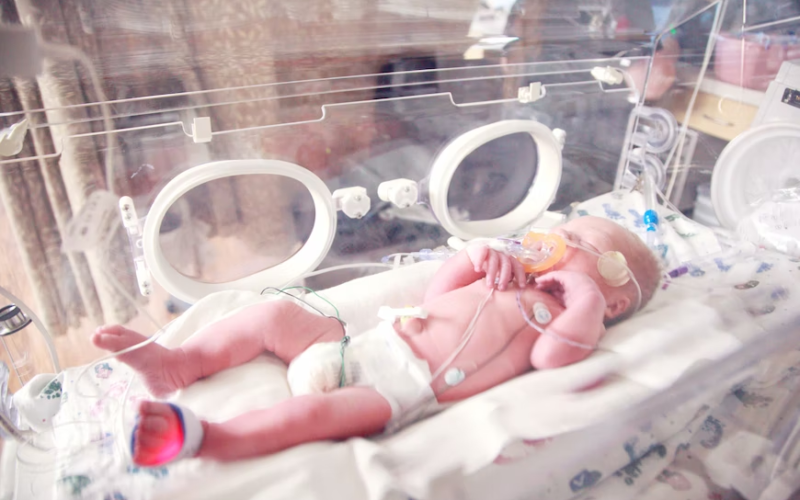When you have a toothache, it’s hard to think about anything else. You may be wondering if you have a dental emergency on your hands.
The pain may be sharp, throbbing, or constant. Maybe it’s accompanied by swelling, redness, or bleeding. Or maybe you have a loose tooth or one that’s been knocked out entirely.
These are all signs that you might need to visit emergency room dentist and see an emergency dentist. But how do you know for sure? And what exactly is considered a dental emergency?
A dental emergency is any situation that requires immediate attention. If left untreated, an issue can become more serious and lead to other problems like emergency wisdom tooth extraction or even a full-fledged surgical intervention.
But even if you have a minor situation, it’s better to get it taken care of as soon as possible. Your dentist can help you determine whether your dental problem is an emergency and advise you on what to do about it.

Dental emergencies can be broken down into four general categories: severe pain, such as from a cracked tooth or an abscessed tooth; dangerous conditions, such as from a chipped tooth or a loose crown; problems that affect chewing and swallowing, such as from broken dentures or a mouthful of broken or chipped teeth.
A dental emergency is any situation that poses a threat to the oral cavity or teeth. This can include anything from a cracked tooth to an abscessed tooth. If you are experiencing any pain, swelling, or bleeding in your mouth, you should seek immediate dental care.
In some cases, you may be able to wait a few days for an appointment, but it is always best to err on the side of caution and see a dentist as soon as possible.
Dental Emergency Cases
Uncontrolled bleeding from the mouth is a dental emergency that can have many causes. It can be caused by something as simple as brushing your teeth too hard or by an injury to the mouth.
Bleeding from the mouth can also be a sign of a more serious condition, such as cancer. If you have uncontrolled bleeding from the mouth, it is important to see a dentist or medical doctor right away so that the cause can be determined and treated appropriately.
If you have a knocked-out tooth, it is important to seek dental care immediately. While it may be tempting to try and save the tooth, it is essential to understand that a dentist will be able to give you the best possible care.
A knocked-out tooth is a serious dental emergency and should be treated as such. Additionally, it will be important to see a dentist in order to care for the tooth properly. A tooth that has been knocked out should not be put back into place because doing so can cause damage to the root of the tooth.
Dental infections can be very serious and, if not treated promptly, can lead to life-threatening complications. If you have a dental infection, it is important to see your dentist or an emergency dentist as soon as possible.
A dental infection is typically caused by bacteria from the mouth entering the soft tissue through a small crack in the gums. The infected gum tissue then becomes swollen and causes pain and difficulty eating or drinking.
If left untreated, a dental infection can spread to other areas of the face and neck. This can lead to more serious complications, such as a stroke or heart attack

When To Call Your Dentist
The first thing you should do when something goes wrong with your teeth is to call your dentist. Even though there are many things that you can do at home, it’s best to see a professional as soon as possible.
Your dentist will be able to give you the proper treatment and determine if your problem is something that should be seen by a specialist.
For example, if you have a toothache, you may think it’s just an infected tooth. But what if it’s something more serious like an abscess? Only a dentist will be able to tell you.
What To Do Until You Get To The Dentist
Tooth pain: Sudden, sharp tooth pain is one of the most common dental emergencies. In most cases, it is caused by a cavity or tooth decay that has reached the nerve in your tooth. Tooth pain is usually accompanied by swelling and/or bleeding gums.
The first thing to do is to rinse your mouth with warm salt water. This will help to relieve the pain and prevent any further damage. It also helps to remove any debris that may be in your mouth.
If the pain and swelling persist, you should see a dentist immediately. If your tooth still hurts after a few hours, you can take an over-the-counter pain reliever such as ibuprofen or acetaminophen to relieve the pain.
Toothache pain can sometimes be mistaken for an earache or headache. If you have a toothache and think it may be an ear ache, try chewing on the opposite side of your mouth to see if the pain goes away.
If the pain does not go away or gets worse, you may have a toothache. If you think it is a headache, try taking some over-the-counter pain relievers for your head and see if the pain goes away. If these steps do not work, call your dentist immediately.
Broken Tooth: when a tooth breaks, the surrounding teeth and gums can be affected as well. The first thing to do if you break a tooth is to rinse the affected tooth and surrounding area with warm water. Then go to your dentist or emergency room immediately.
Chipped Tooth: when a tooth is chipped or cracked, an infection can get inside the tooth. The nerve at the root of your tooth can also be damaged. If you cannot get to your dentist right away, put an ice pack on the chipped tooth. Spit out any food that may be lodged in the crack or hole. With this and many other issues, dentist in west bloomfield mi can help you.
When Is It Not A Dental Emergency?
This is a question that many people have. There are some cases where you can wait to see a dentist, but there are also some cases where you need to seek immediate medical attention.

A dental emergency is a serious matter that should not be taken lightly. Many people believe that any time they have a toothache, it is a dental emergency. This is not always the case. There are many situations where a toothache is not a dental emergency.
For example, if you have a cavity, it is not a dental emergency. A cavity can be treated by your regular dentist during their normal business hours. You do not need to go to the emergency room or an after-hours dentist for this type of problem.
Having a toothache is not a dental emergency. A broken or cracked tooth can be a dental emergency, but only if it is causing you pain. If you have a broken tooth and the pain is severe, it could lead to further damage to your mouth.
If you feel that a broken tooth is causing you intense pain, it should be seen by a dentist immediately.
What Happens Next?
Dental emergencies can be scary. You may be in pain, or you may have a tooth that is knocked out. You may be wondering what to expect when you go to the dentist for an emergency appointment.
Here are some things you can expect:
The dentist will first take a look at the problem and determine what needs to be done. They may give you some pain medication if you are in pain. If you have a tooth that is knocked out, they will try to put it back in place.
If they cannot, they will put it in a glass of milk. If you have lost a filling or other part of your crown, the dentist will put it back in place. The dentist may need to take an X-ray to see the damage that was done.
If you have lost a tooth, they will put in a temporary crown and give you antibiotics to prevent infection. You may be told not to chew on that side for several days.
The dentist will then schedule a follow-up appointment to replace the temporary crown with a permanent one. Sometimes, the damage is so great that it cannot be fixed with a temporary crown or filling. In that case, you may need to have an implant put in place of your missing tooth.
Barbra Maranda
Latest posts by Barbra Maranda (see all)
- 6 Study Tips For College Students - March 27, 2024
- Benefits Of A Smoke-Free Home - March 13, 2024
- Cyberbullying Affects Teens More Than You Know - March 9, 2024




